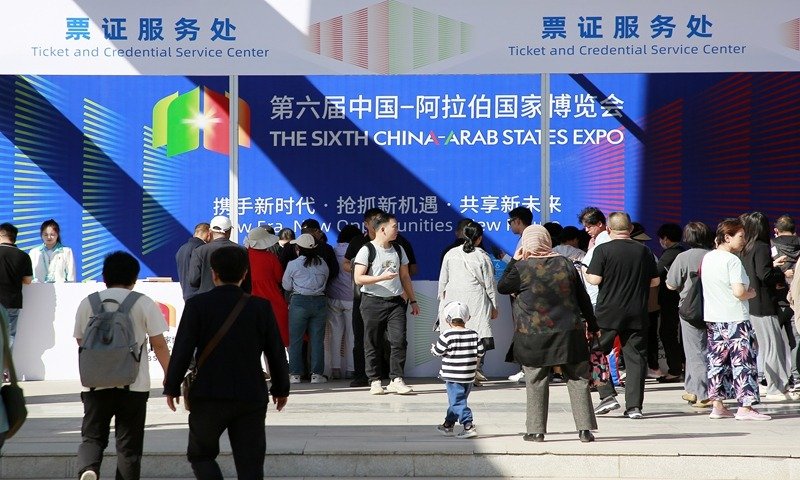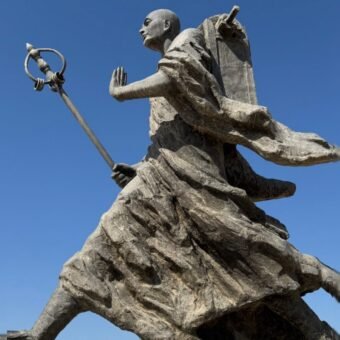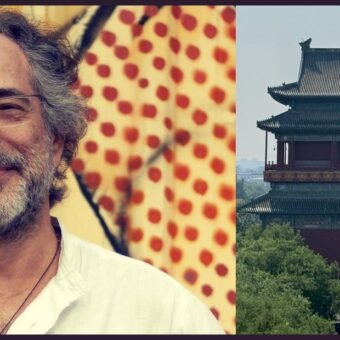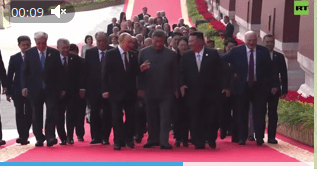China-Arab states cooperation forum
China wants to be part of peace in the world. I’ve quoted from Global Times on the China-Arab states cooperation forum that starts tomorrow. If you read the whole article, you will see that most of it deals with the ongoing Palestine-Israel conflict. This could be a very interesting wrinkle in the road, as I am convinced that China will urge, nudge and encourage these countries to actually do something.
When?: From Tuesday to Saturday
Invited by?: President Xi Jinping
Who?: , Bahrain’s King Hamad bin Isa Al Khalifa,
Egypt’s President Abdel Fattah El-Sisi,
Tunisia’s President Kais Saied, and the United Arab Emirates’
Resident Sheikh Mohamed bin Zayed Al Nahyan will pay state visits to China and attend the opening ceremony of the 10th Ministerial Conference of the China-Arab States Cooperation Forum.
President Xi will attend the opening ceremony of the conference and deliver a keynote speech.
The attendance of four heads of state of Arab countries to the opening ceremony of the conference fully reflects the solidarity and cooperation between China and Arab countries. The organization has been expanding and is expected to play an active role in regional and global governance with key focus on ongoing Palestine-Israel conflict, they noted.
The Arab world and the Middle East also have their own concerns, including the Palestinian issue and security in the Gulf region. “These issues have started to be included within the framework of the China-Arab cooperation forum. Therefore, in the context of mutual support for each other’s core interests, there is a need to strengthen cooperation in global governance, especially with the prominence of the Global South,” Liu said.
Egypt, Saudi Arabia, and the UAE have become new members of the BRICS mechanism. This development has created more opportunities for cooperation between China and the Arab world in the field of global governance, Liu noted.
The meeting plans to adopt outcome documents such as the “Beijing Declaration” and the “Forum’s Action Plan for 2024-2026.” These documents will further consolidate the China-Arab consensus, plan the next phase of cooperation, and jointly voice the China-Arab stance on the Palestinian issue.
China and Arab countries are also partners in implementing China-proposed Global Security Initiative, as China emphasizes partnership without alliance and mutual dependence, and those new security concepts can also play a positive role in the governance of security in the Middle East, the expert added.
At the ministerial meeting of this forum, Chinese Foreign Minister Wang and Arab foreign ministers will continue to conduct in-depth discussions on the Palestinian issue, forming a common voice between China and the Arab countries, Deng further introduced.
The goal is to end the conflict in Gaza as soon as possible, achieve peace, and urge the international community to implement the “two-state solution” with greater determination and more specific actions, ultimately achieving long-term stability in the Middle East, the senior Chinese official said.
“Regarding the Gaza conflict, there are three short-term and long-term goals that China has always insisted on,” Deng said.
In the short term, we demand an immediate cease-fire and the implementation of the cease-fire resolution passed by the UN Security Council. Secondly, we must focus on alleviating the humanitarian crisis, including ensuring humanitarian aid, opposing the forced displacement of the Palestinian people, and collective punishment of the people of Gaza. Thirdly, we must prevent the spillover effect of this conflict and maintain peace and stability in the entire region, which are our short-term goals, he noted.
In the long term, the Middle East issue has not been resolved, fundamentally because the independence and statehood of Palestine have not been achieved. This historical injustice that has lasted for decades has not been corrected. The true implementation of the “two-state solution” and the resolution of the concerns of all parties through political means to achieve the goal of Palestinian independence and statehood is the fundamental solution to the Middle East issue and achieving peace and security in the region, Deng further stressed.
Only by achieving the “two-state solution” and fulfilling the historical aspirations of the Palestinian people can the region truly achieve peace. And only by achieving this goal can the security of Israel be fundamentally guaranteed, he said.
At this moment, the international community should all act from a standpoint of public interest and justice to do something for peace in the Middle East, he said.











